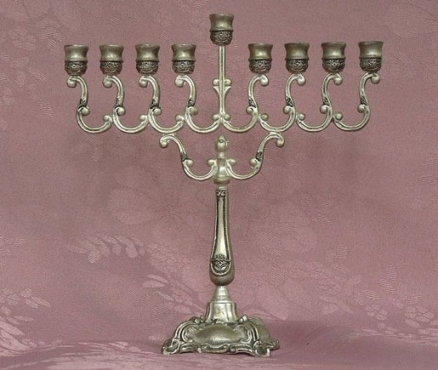Ancient history of Hanukkah
The ancient history of Hanukkah is set in the period of Greek domination over the Holy Land. Following severe oppression by the Greek ruler Antiochus, the Jewish people rose up and restored the Temple to its previous glory. Hanukkah, however, is not simply a celebration of this restoration of the self determination of the Jewish people, but really celebrates the accompanying miracle of the ceremonial olive oil flame that outlasted any expectation of extinction. Furthermore, Hanukkah, alternatively Chanukkah, is the Jewish holiday carried forward by oral history, not within the Torah, and thus is the Jewish holiday most uniquely of the Jewish people, as opposed to other Jewish holidays documented in the Torah and nurtured by the rabbinical culture.
Contents
Background of Greek rule
Alexander the Great (356 – 323BCE) conquered extensive lands in the Middle East including the historic homeland of the Jews, which lands were previously controlled by the Persians. Alexander allowed the Jews to practice their religion, but encouraged cultural assimilation; however, More than one hundred years later, a successor of Alexander, Antiochus IV (c. 215 BC – 164 BCE) was the Greek in charge of the Middle East, ascending to the Seleucid throne in 175 BCE. Antiochus oppressed the Jews, positioning a Hellenistic priest within the Jewish Temple, killing many Jews, outlawing the practise of Judaism and desecrating the Temple. Two factions rose up against the Greek conquerors: a nationalistic faction led by Mattathias the Hasmonean and his son Judah Maccabee, and a religious faction known as the Chasidim, the harbingers of the Pharisees (unrelated to the modern movement of Chasidism). These factions united to revolt against the assimilation pressures and the oppression by the Seleucid government. The revolution won out in 165 BCE, and the Temple was subsequently rededicated.
Role of olive oil
Olive oil played a vital role in the first celebration of Hanukkah. To understand its role in the ancient world of the Mediterranean Basin (Mediterranean Sea), one must realize that the fruit of the olive was one of the earliest food plants to be domesticated. As Isaiah comments in the Old Testament, Jews and other peoples of the region used sticks to beat olives from the trees, alluding to widespread cultivation of this food crop. The olive harvest was a festive time, according to Isaiah, with the olive gatherers placing their fruit in colorfully woven fabrics.
Miracle of the flame
At this time of the revolt against their Greek rulers, there was a noteworthy shortage of olive oil for keeping the ceremonial flame burning in the temple. It was to take eight days before fresh and pure olive oil could be produced to continue the flame; however, miraculously the temple flame of olive oil remained alive for the full eight days, giving rise to the celebration of Hanukkah over an eight night interval.
References
- Elisha Friedman. 2007. Chanukah Illuminated. books.google.com 80 pages
- Lester L. Grabbe. 2000. Judaic Religion in the Second Temple Period: Belief and Practice from the Exile to Yavneh. Routledge. ISBN 0415212502
- Sarah Iles Johnston. 2004. Religions of the Ancient World: A Guide. Harvard University Press. ISBN 0674015177
- Joan Nathan. 1996. As Hanukkah Approaches, Olive Oil Takes Center Stage. New York Times. December 04, 1996
